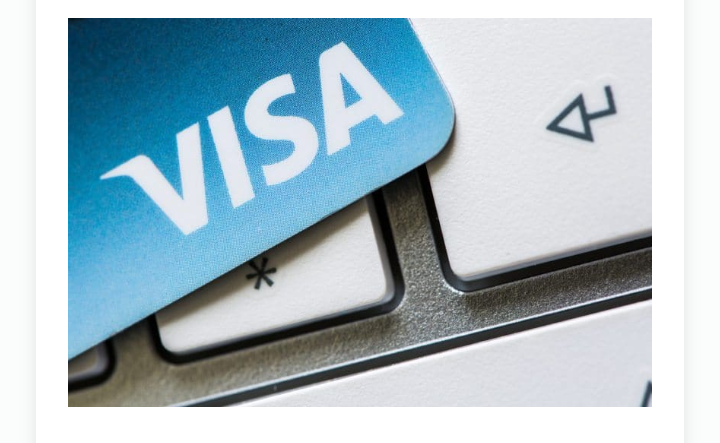Visa International Service Assessment (ISA) fees are a little-known and often misunderstood fee that can add up quickly.
Fees for using a credit card abroad are international transaction fees, and the name and rate of these fees may vary depending on the issuing bank.
Ranging from under half a per cent to over a per cent, these fees can add up — especially when stacked on top of other interchange and processing fees.
After reading this post, you will better understand International Service Assessment Fees and why it exists.

What is Visa International Service Assessment Fee?
The Visa International Service Assessment Fee is a fee you may charge if you use your credit card to purchase from a merchant outside the USA for international transactions. This fee is set by Visa and has been in place since 2009.
You might be wondering: Why do these ISA fees exist? Because Visa is responsible for processing all transactions made using its network, this fee covers the cost of providing a service designed to protect credit card holders and merchants anywhere in the world.
The fee amount depends on the issuer and the currency in which the transaction is settled. Sometimes, this transaction fee may range from 0.80% to 1.20%.
For example, if a merchant charges in the same currency as their customer’s Visa account (U.S. dollars), there is no foreign exchange element involved, and the fee stays at 0.80%
While Visa does not charge ISAs directly to merchants (or their customers), they do pass them along through interchange fees charged by their issuing bank or payment processor at the time of purchase.
When are international service assessment fees charged?
When a transaction occurs in the U.S., the acquiring bank charges international service assessment (ISA) fees to merchants whose customers swipe/insert their cards issued outside of America’s borders.
The International Service Assessment fee is charged when there’s a mismatch between the billing currency and the transaction’s settlement currency; the merchant’s bank charges the fee.
For example, a British credit card holder purchases online from a U.S.-based retailer in USD. Since Visa does not directly charge merchants for ISAs on any payment channel, it’s easy to see why such fees are often misunderstood.
Most merchants don’t realize that they exist until they get their monthly invoice or statement—which can be months later than when the sale was made.

How much is the ISA fee?
Knowing how much you’re paying for your ISA and international acquirer fees is essential.
The way it works is that the bank charges you a fee per foreign transaction depending on the currency in which the transaction is settled.
It’s not just one fee, though— it’s two!
The first is the International Service Assessment Fee (ISA fee), which varies depending on what currency you’re settling in. If you choose to settle in U.S. dollars, there’s no currency exchange element involved, and the fee stays at 0.80% when you choose to transact in a foreign currency, Visa tacks on another 0.40%.
The second is called an International Acquirer Fee, also based on what currency you’re using. If you choose U.S. dollars as your settlement option, there are no additional fees; if you choose a foreign currency, however, this fee gets added on top of everything else (again).
How to avoid Visa international service assessment fees
If you are a U.S. citizen, there is no way to avoid the visa international service assessment fee unless you choose not to use your credit card in another country outside the USA.
This fee exists because of all the work Visa does to ensure that their customers are protected from fraud and that their payments are processed correctly. This is especially important for travellers who may be using their cards in countries where they don’t speak the language or know how the system works.
- Check the rates offered by different banks and providers. Some charge lower fees than others, so it’s worth comparing.
- Consider using a money transfer service like Western Union or MoneyGram. These companies typically charge lower fees than other providers, offering 24/7 customer service.
- Ask your bank if they offer international money transfers that don’t involve banks. Some banks offer transfer services that are cheaper than those big banks.
- Check with your travel insurance company about potential coverage for foreign transaction costs. Many policies include coverage for lost cash, cancelled flights, and unexpected expenses while travelling.
While some people may view this fee as unfair or unnecessary, it is essential to remember that without companies like Visa that provide these services, more fraud would occur worldwide.
In addition, this fee is not unique to Visa or even credit cards. Other card companies such as Mastercard also charge a foreign transaction fee on purchases made outside the United States.
Does Amazon charge international fees?
You don’t want to worry about being charged extra fees when you’re travelling abroad. With the Amazon.com Store Card, you won’t have to worry about this—we have a flat 0% foreign transaction fee!
If you use your card at an establishment that doesn’t accept American Express or make an online purchase outside of Amazon.com and select U.S. merchants that accept Amazon Pay, then your card will be charged a 3% foreign transaction fee.
So, the next time you’re planning a trip, pack your Amazon.com Store Card—it’ll help you save on those international purchases!
Conclusion
As you can see, many factors go into credit card processing fees, but the bottom line is that they’re unavoidable.
Unfortunately, when accepting foreign transactions, international service assessment fees and other fees are probably here to stay. With the increase in eCommerce/global transactions, there’s no incentive for processors and associations to work together to reduce these fees.
These fees are non-negotiable, so your best bet is to make sure you’re paying as little as possible for credit card processing in general.